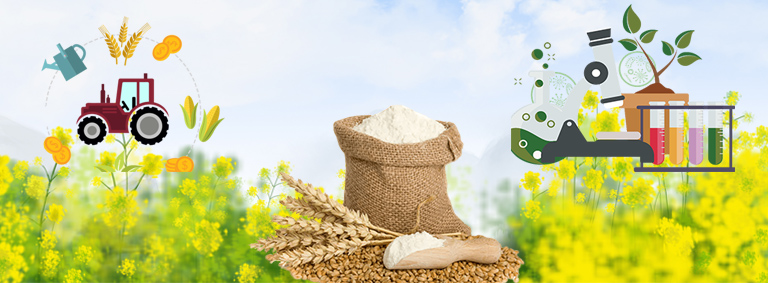The Indian population currently stands at 1.3 billion and is likely to rise to 1.7 billion by 2050. With the growing population, India will not only have to raise its agricultural production, but also the productivity to ensure its food and nutrition security.
However, the Indian agriculture sector faces some key challenges, and these are low productivity, lack of awareness for proper agrochemical use, monsoon dependency, reduction in arable land, high post-harvest losses and declining soil fertility.
About 15%-20% of crop output is lost due to attacks by pests, weeds and diseases. Efficient and judicious usage of agrochemicals and crop protection solutions is the need of the hour, so that agriculture is practised in a sustainable manner.
Agrochemical industry in India has huge unrealized potential for growth due to very low level of agrochemical consumption currently as compared to global norms. The manufacturers have huge capacity base with innovative product portfolios.
Seasonal domestic demand of agrochemicals leads to more than 50% of production being exported. The outstanding capacities with Indian manufacturers create a huge potential for increasing exports with adequate support via government policies.
Government must focus on developing capabilities of pesticides testing laboratories, improving sampling process by bringing in transparency to the process, strengthen imports inspection and registration for new bio pesticides to check spurious items.
As per a recent knowledge paper, jointly brought out by FICCI and Mott MacDonald, there are some imperatives which all stakeholders need to focus on. Sustainable farming implies quality output with adequate produce and livelihood for farmers.
India’s raw material imports from china for agrochemicals has grown at CAGR 32% during FY14-18. Government should focus on creation of agrochemical parks with common utilities like effluent treatment plant and waste disposal infrastructure.
The report suggests the government to create storage and handling facilities which enable farmers to off load their produce in a staggered manner, preventing spoilage and also allow for credit period to realise better prices post harvesting.
Innovation funds should be established to support agri-tech start-ups and industry players in building proof of concepts (PoCs) for technologies across agri value chain. This support will absorb high costs of R&D and expedite realisable profits since development of molecules and its adaptability to real life challenges takes a long period.
The government, in partnership with private firms, should also focus on development of post-harvest infrastructure for storage, processing and access to market. Better trainings and knowledge transfer should be arranged leveraging PPP model.
To find new business models, Zero Budget Farming program of government should be reviewed and taken up through countrywide coordinated research project trials as step to prove its commercial viability and its impact on livelihood of the farmers.
For increasing the production and productivity, use of hybrid and certified seeds is very important. Farmers need to be made aware of the benefits of major research for hybrid and new varieties of seed carried out by the private sector including MNCs.
Finally, the GST rate for agrochemicals, currently at 18%, need to be reduced.
Apart from the government, some key imperatives for the farmers include increasing oilseeds production using agrochemicals to cut down on huge imports, use of right agrochemicals can help manage invasive species and reduce post-harvest loss.
Besides, the agrochemical industry can focus on farm research like crop diseases, generic molecule discovery, micro nutrients and new technology. It should also train dealers, collaborate with top academic institutes and technology transfer.
(The author is Chairman, FICCI Sub Committee on Crop Protection Chemicals and Group Chairman, Dhanuka Agritech Ltd)






Its interesting blog with futuristic steps.In addition to it,at present,there is great demand in our country to focus on cultivation farming based on reusable energies.It not only helps in reusability but also in cost cutting.